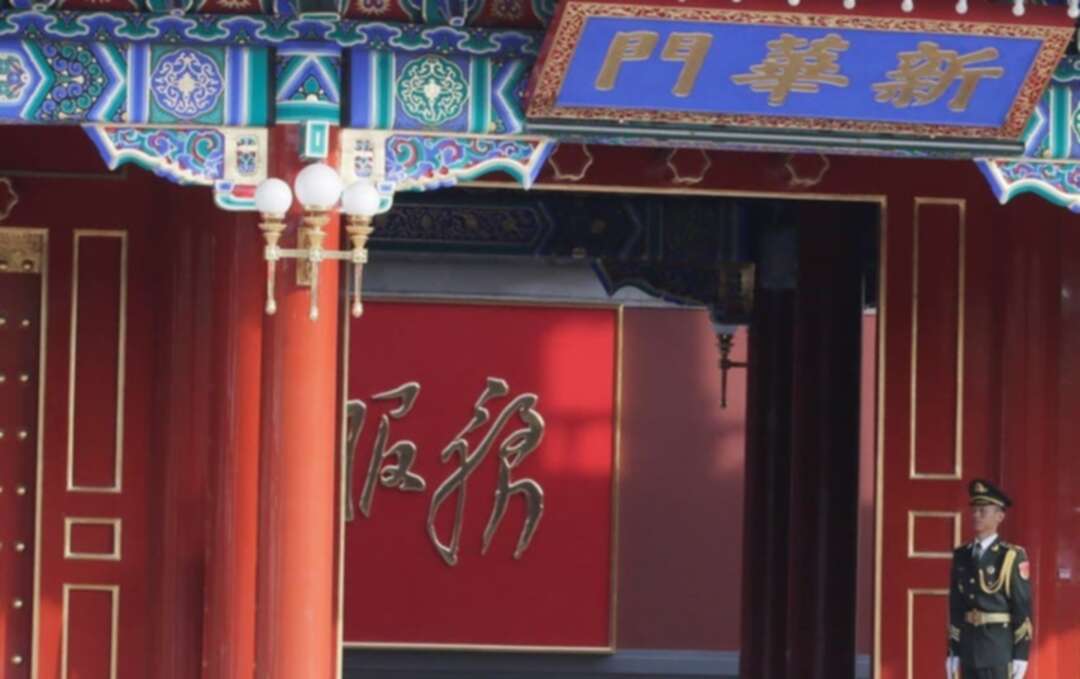-
Beijing warns US of ‘no compromise’ on sovereignty and security at Alaska talks

China’s foreign ministry said on Thursday it would not make concessions to the US on key issues including Xinjiang and Hong Kong, ahead of high-level meetings between the two countries’ diplomats in Alaska.
Secretary of State Antony Blinken and White House national security adviser Jake Sullivan are set for talks with senior Chinese official Yang Jiechi and Foreign Minister Wang Yi later Thursday.
It is the highest-level face-to-face diplomatic meeting between the two countries since US President Joe Biden took office.
China wants a reset in relations, which were pitched into turmoil by Donald Trump’s presidency, which brought a damaging trade war and spats over everything from defense to tech and rights in Hong Kong.
But as the diplomats landed in Alaska hours ahead of the talks, a foreign ministry spokesman in Beijing issued a warning to Washington.
“China has no room for compromise on issues concerning its sovereignty, security and core interests,” spokesman Zhao Lijian told reporters.
Zhao urged the US against talking tough and engaging in “megaphone diplomacy” toward China after Washington said it intended to show its firmness against Beijing after a round of alliance-building across Asia.
“The US should meet China halfway and conduct the dialog in a sincere and constructive manner,” Zhao said.
The Alaska talks will be the first between the powers since Yang met Blinken’s hawkish predecessor Mike Pompeo last June in Hawaii -- a setting similarly far from the high-stakes glare of national capitals.
The American diplomats aim to be on the front foot in the talks, US officials have said.
The US plans to express “deep concerns” about the treatment of the Uighur minority in Xinjiang, a crackdown in Hong Kong, Chinese “economic coercion” and Beijing’s “increasingly aggressive” stance towards Taiwan.
Those are all issues China has defended in the past as domestic affairs and matters of national sovereignty.
source: AFP
Image source: Reuters
Levant
You May Also Like
Popular Posts
Caricature
BENEFIT Sponsors BuildHer...
- April 23, 2025
BENEFIT, the Kingdom’s innovator and leading company in Fintech and electronic financial transactions service, has sponsored the BuildHer CityHack 2025 Hackathon, a two-day event spearheaded by the College of Engineering and Technology at the Royal University for Women (RUW).
Aimed at secondary school students, the event brought together a distinguished group of academic professionals and technology experts to mentor and inspire young participants.
More than 100 high school students from across the Kingdom of Bahrain took part in the hackathon, which featured an intensive programme of training workshops and hands-on sessions. These activities were tailored to enhance participants’ critical thinking, collaborative problem-solving, and team-building capabilities, while also encouraging the development of practical and sustainable solutions to contemporary challenges using modern technological tools.
BENEFIT’s Chief Executive Mr. Abdulwahed AlJanahi, commented: “Our support for this educational hackathon reflects our long-term strategic vision to nurture the talents of emerging national youth and empower the next generation of accomplished female leaders in technology. By fostering creativity and innovation, we aim to contribute meaningfully to Bahrain’s comprehensive development goals and align with the aspirations outlined in the Kingdom’s Vision 2030—an ambition in which BENEFIT plays a central role.”
Professor Riyadh Yousif Hamzah, President of the Royal University for Women, commented: “This initiative reflects our commitment to advancing women in STEM fields. We're cultivating a generation of creative, solution-driven female leaders who will drive national development. Our partnership with BENEFIT exemplifies the powerful synergy between academia and private sector in supporting educational innovation.”
Hanan Abdulla Hasan, Senior Manager, PR & Communication at BENEFIT, said: “We are honoured to collaborate with RUW in supporting this remarkable technology-focused event. It highlights our commitment to social responsibility, and our ongoing efforts to enhance the digital and innovation capabilities of young Bahraini women and foster their ability to harness technological tools in the service of a smarter, more sustainable future.”
For his part, Dr. Humam ElAgha, Acting Dean of the College of Engineering and Technology at the University, said: “BuildHer CityHack 2025 embodies our hands-on approach to education. By tackling real-world problems through creative thinking and sustainable solutions, we're preparing women to thrive in the knowledge economy – a cornerstone of the University's vision.”
opinion
Report
ads
Newsletter
Subscribe to our mailing list to get the new updates!






















